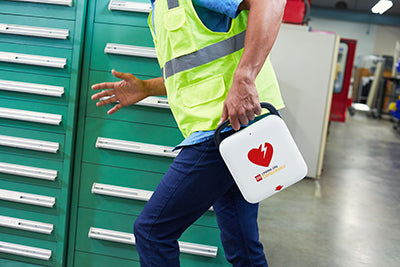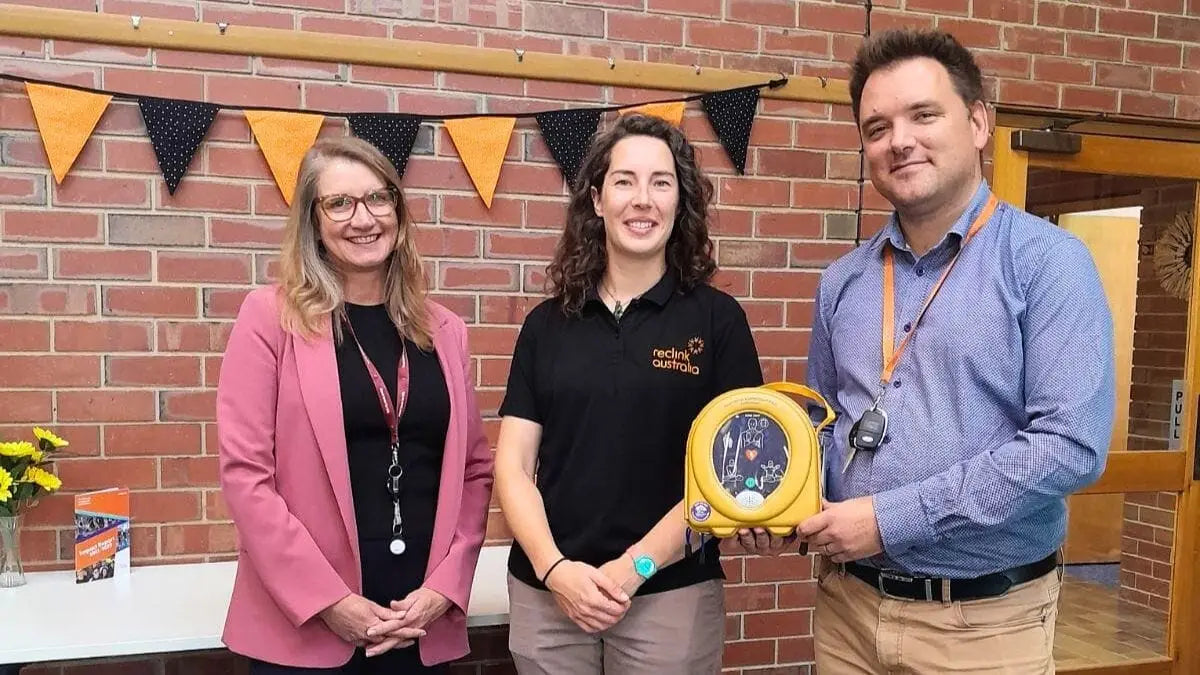The Risks and Emergency Response
As winter temperatures plunge across Canada, the relationship between cold weather and sudden cardiac arrest (SCA) becomes an increasingly important public health concern. Research shows that the risk of SCA increases significantly during cold weather months, making it crucial for Canadians to understand both the risks and appropriate emergency responses.
The Cold Weather Connection
When temperatures drop below freezing, our bodies work harder to maintain core temperature. This additional stress can lead to:
- Increased blood pressure
- Higher heart rate
- Constriction of blood vessels
- Greater oxygen demand on the heart

These physiological changes can trigger cardiac events, particularly in individuals with underlying heart conditions or risk factors.
Emergency Response: The Critical Role of AEDs and CPR
While CPR is a fundamental life-saving technique, the integration of Automated External Defibrillators (AEDs) significantly improves survival rates. AEDs analyze heart rhythms and deliver electric shocks when necessary to restore normal heart function. When comparing AED vs. CPR alone, studies show that using an AED alongside CPR can increase survival rates by up to 75%.
Finding and Accessing AEDs
Locating an AED during an emergency is crucial. Canadians are starting to use online resources and mobile apps to find "AED near me" locations. AED.ca serves as a comprehensive resource for AED information across the country. Public spaces, including shopping centers, sports facilities, and office buildings, businesses are increasingly choosing to have AED defib machines readily available.
AED Canada Requirements and Certification
Canadian regulations regarding AED placement vary by province, but many jurisdictions now mandate AEDs in specific public spaces. To effectively use these devices, proper training is not essential, but is helpful. AED certification programs are widely available and often combined with First Aid & CPR training.

Portable AED Solutions
For individuals or organizations considering AED purchase, portable AEDs offer flexibility and accessibility. These lightweight, battery-operated devices can be easily transported and used in various settings. When evaluating AED cost and AED price options, consider:
- Initial purchase price ($1,595-$2,500 CAD)
- Maintenance requirements
- Battery replacement schedules
- Electrode pad replacement
- Training costs
- Warranty coverage
https://aed.ca/collections/aeds

Winter Safety Recommendations
- Know your nearest AED locations
- Consider AED certification
- Monitor weather forecasts and limit outdoor activity during extreme cold
- Learn to recognize early warning signs of cardiac distress
- Keep emergency numbers readily available
The Investment in Safety
While the AED price may seem significant, the potential to save a life makes it a valuable investment. Many organizations offer AED grants or financial assistance programs to help offset costs. Regular maintenance and proper storage are essential to ensure AEDs remain functional when needed.
Community Impact
Communities with widespread AED availability and trained residents show significantly better outcomes for cardiac arrest victims. The combination of accessible AEDs and CPR-trained individuals creates a stronger chain of survival, particularly crucial during cold weather months when risk factors are elevated.

Prevention and Preparation
Preparing for cardiac emergencies involves multiple steps:
- Regular health check-ups
- Understanding personal risk factors
- Maintaining AED certification
- Knowing local AED locations
- Staying informed about weather conditions
Conclusion
The increased risk of sudden cardiac arrest during cold Canadian winters underscores the importance of AED accessibility and proper training. While the initial AED cost may be substantial, the potential to save lives makes it an invaluable investment for communities and organizations. By combining AED availability with proper training and weather awareness, we can better protect vulnerable individuals during the challenging winter months.
For more information about or purchasing options contact AED.ca via Email info@aed.ca or call us at 1 (833) HAVE AED (1-833-428-3233) or online @ https://aed.ca/pages/contact
Remember, in the event of a cardiac emergency, early intervention with both CPR and AED significantly improves survival rates.






